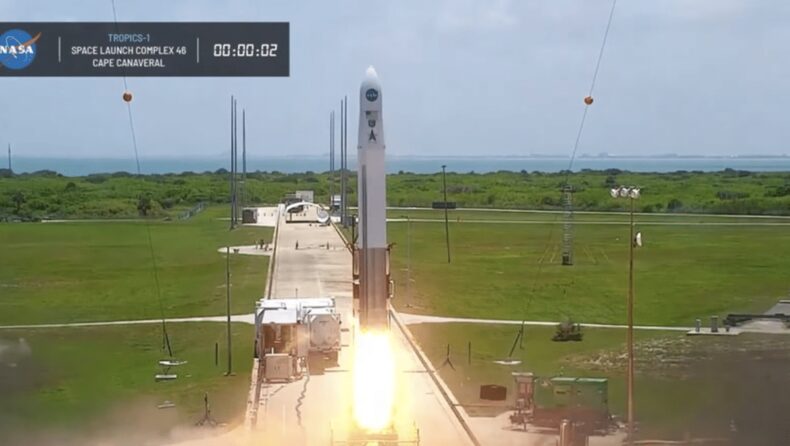NASA and Astra Space have revised a launch contract originally awarded for the launch of a constellation of CubeSats after Astra Space retired the launch vehicle that would have carried out the launch.
A contract worth $7.95 million was awarded to Astra in February 2021 for three launches of its Rocket 3.3 vehicle, each carrying two NASA Time-Resolved Observations of Precipitation structure and storm Intensity with a Constellation of Smallsats (TROPICS) CubeSats. Two TROPICS satellites were lost as a result of the failure of the June launch to reach orbit.
Astra announced on August 4 that it was discontinuing the Rocket 3.3 vehicle in favour of the larger Rocket 4, which has a payload capacity of up to 600 kilograms compared to 50 kilograms for Rocket 3.3. While Astra stated at the time that it was in talks with NASA about using Rocket 4 to launch the remaining TROPICS satellites, the larger vehicle would not have been suitable for the 3U cubesats and would have required NASA to wait until at least 2024, given Astra’s projected development schedule for Rocket 4.
NASA announced on September 28 that it had agreed to amend the contract with Astra. Instead of launching TROPICS CubeSats on Rocket 4, the contract will be used to “launch comparable scientific payloads” The agency will solicit proposals for Smallsat launch services from companies participating in its Venture-Class Acquisition of Dedicated and Rideshare (VADR) contract in order to launch the TROPICS CubeSats prior to the 2024 hurricane season.
In January, NASA selected a dozen companies for the VADR contract, including Astra, and recently added Firefly Aerospace. These companies are qualified to submit bids for NASA launch contracts for small satellites on dedicated missions or as rideshare payloads on larger vehicles.
NASA will be a launch customer for the next version of Astra’s rocket, according to a statement released by Astra. Neither the company nor NASA disclosed specifics about the contract modification, such as the number of launches it will cover or the possible launch dates.
The failure to launch Rocket 3.3 on June 12 remains under investigation. In a separate statement released on September 28, Astra said it had narrowed down the cause of the failure to a problem with the upper stage engine, which shut down prematurely after consuming more fuel than anticipated.
This issue, according to Astra, has been confirmed by ground tests “that yielded results consistent with the failure condition in flight.” The company said it would provide additional information once its investigation into the failure has been completed in conjunction with the Federal Aviation Administration.













